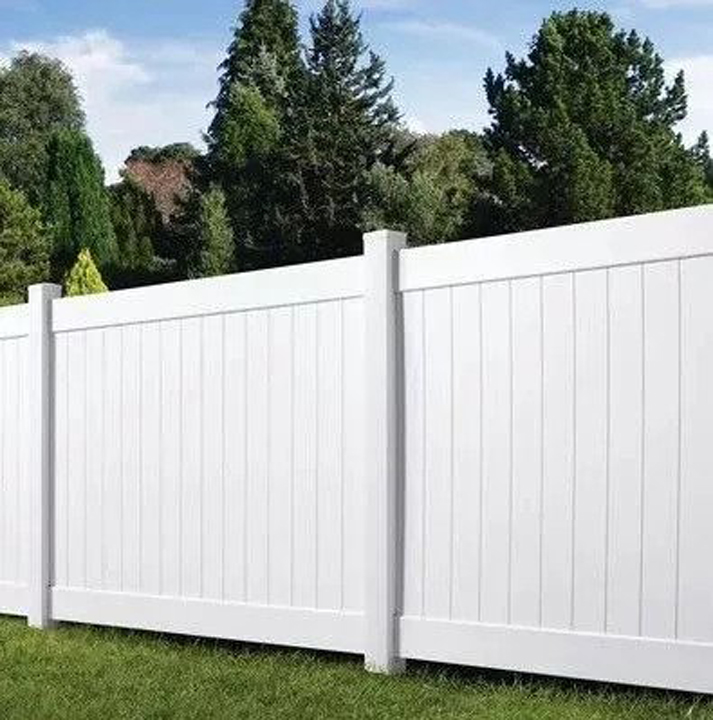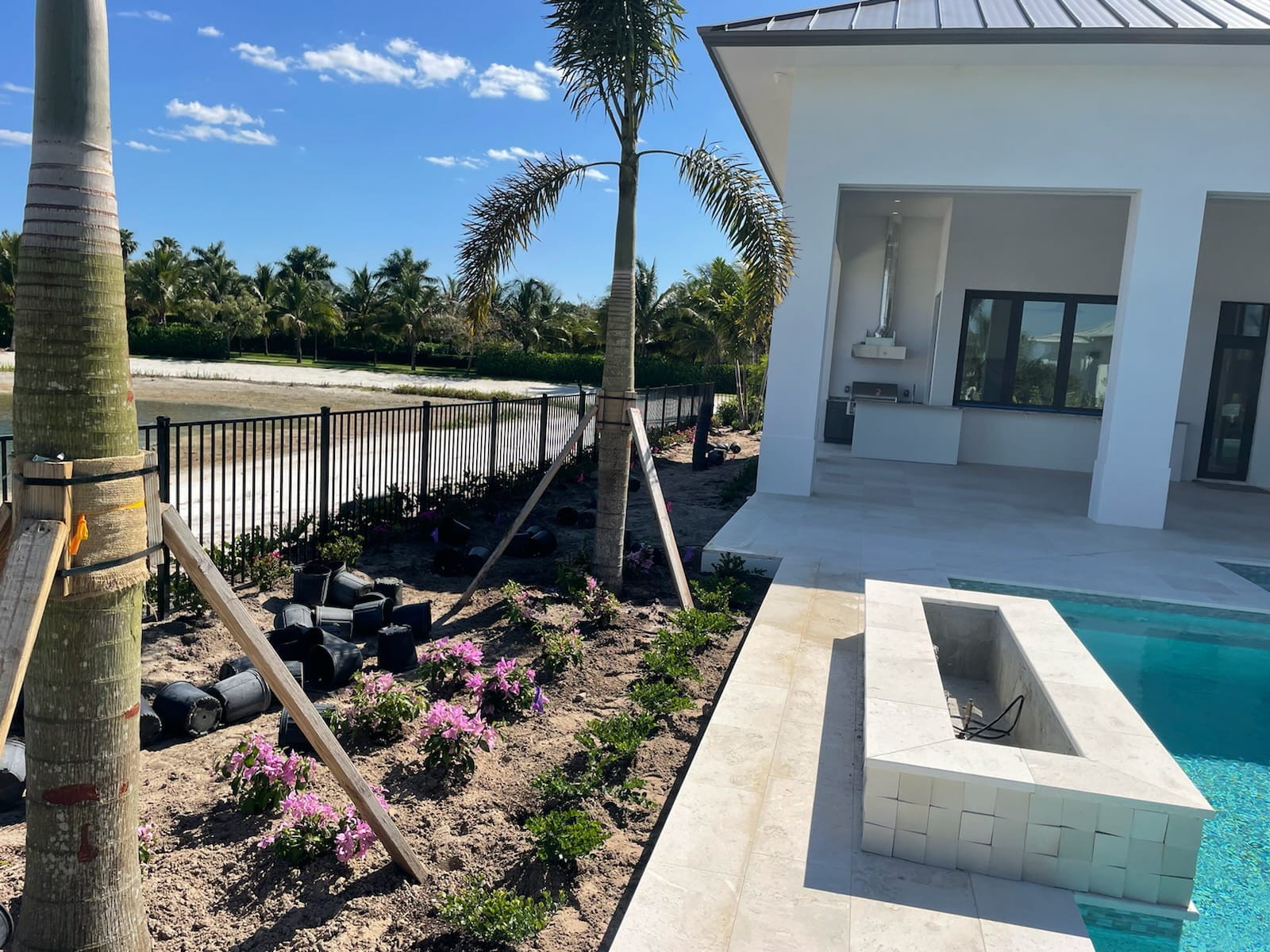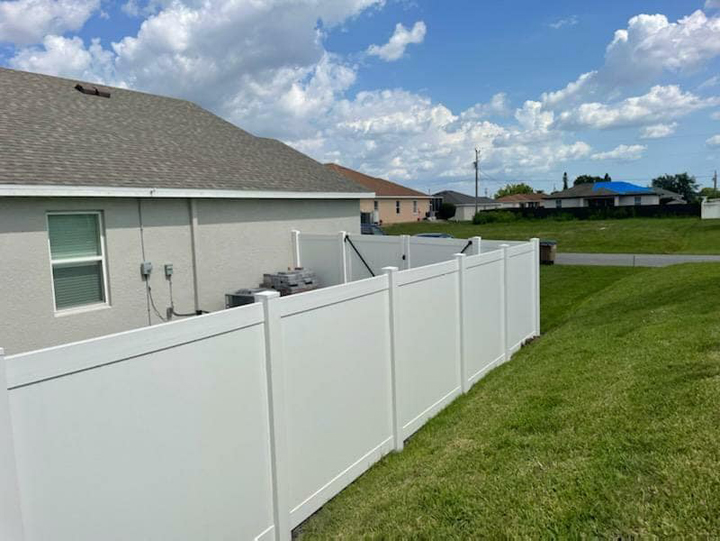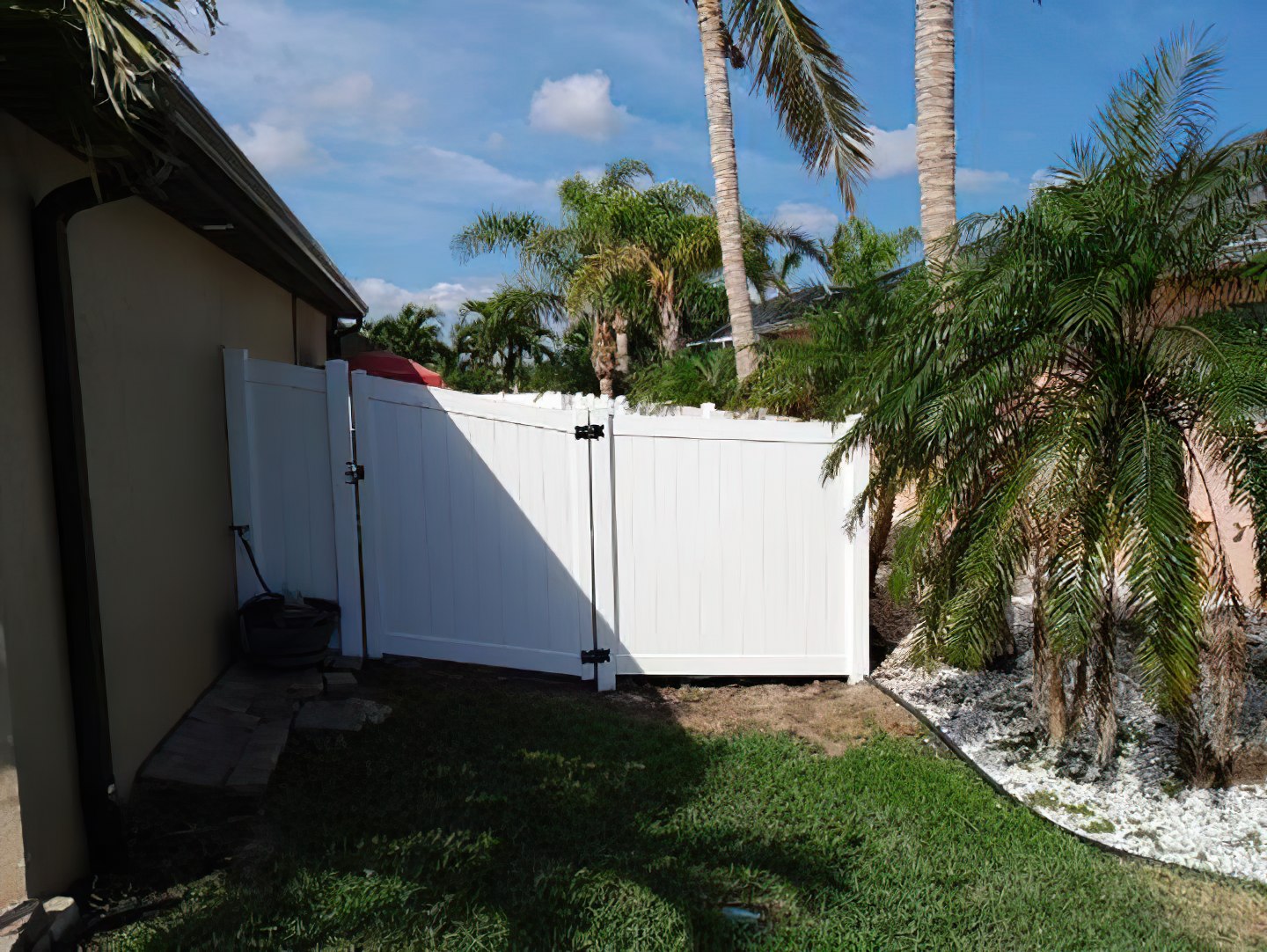Garden fencing is pivotal in yard design, serving practical and aesthetic purposes. It defines property…

Should You Tell Your Neighbors Before Installing a Fence?
Imagine, you wake up one morning and find that your neighbor has erected a massive fence overnight, casting an unwelcoming shadow over your beloved garden oasis. Would you take kindly to this surprise alteration? This illustrative scenario underscores why it’s crucial to communicate with your neighbors before installing a fence. Discover all the reasons why open conversation and transparency can save you potential headaches and keep good neighborly relations intact in our comprehensive guide: “Should You Tell Your Neighbors Before Installing A Fence?” Stay with us as we break down the etiquette, laws, and benefits related to pre-installation fence chats. This might just be the difference between a feuding fiasco or a harmonious haven!
While Cape Coral homeowners generally do not have a legal obligation to inform their neighbors about a new fence if it is built entirely on their own property, it is always recommended to communicate with your neighbors. Informing your neighbors can prevent potential disputes and issues with fence layout and property lines down the road. Not informing your neighbors could result in future issues such as having to move or remove the fence. Additionally, in some cases, local ordinances may require notification of neighbors before constructing a fence. It is also important to consider that chain link fences sometimes require using a neighbor’s corner post, which can create issues if they want to remove their own fence in the future. Survey or poll data on neighbors’ attitudes towards fences and property lines could provide additional insights on how to approach communication.
Legal Aspects of Fence Installation
Before you start planning your new fence installation project, it is important to consider the legal aspects that come with it. Building a fence on your property is not always as simple as you would think. There are several laws and regulations in place that could impact how and where you build your fence. Failure to comply with these regulations could result in fines, lawsuits, or even having to remove the fence altogether.
One such law is zoning restrictions that dictate what kind of fences you can build, how tall they can be and where they can be placed on your property line. These laws vary depending on your location, so it is important to check with your local government before installing a new fence. Additionally, some states regulate fence construction at the state level and have different requirements than other states.
For instance, California has enacted the Good Neighbor Fence Act of 2013, which requires neighbors to split the cost for building or repairing a shared fence. This is a great example of why understanding local and state laws around fence installation is important, as it may impact the financial responsibilities associated with building or maintaining a fence.
Other legal aspects to consider include property boundary laws.
- A survey conducted in 2022 revealed that approximately 76% of homeowners believe it’s crucial to communicate with their neighbors prior to installing a fence.
- According to a 2021 report by the Community Associations Institute, about 60% of homeowners in the United States live under Homeowner’s Associations (HOAs), which often have specific rules about informing neighbors concerning property changes like fences.
- Data from legal service providers indicates that nearly 33% of property disputes among neighbors were related to fences – highlighting the importance of clear communication and mutual agreement upfront.
Property Boundary Laws
Property boundary laws play a critical role in determining where you can build your fence among other aspects. It’s important to understand these laws before you start building your fence as failure to do so could result in disputes with your neighbors or even legal action being taken against you.
While some homeowners may think that building a fence right up against their property lines may increase their yard space or minimize disturbances from neighbors,this is not recommended in all circumstances.In fact,boundary tree lines,the right-of-way for access utilities,and easements must be considered when determining where to install a fence.What’s more,your neighbor’s rights to their adjacent property must be taken into account .They may preclude you from enclosing a part of your land, and you do not want to end up in a lawsuit with them.
Most states have different property boundary laws and regulations that stipulate how a fence can be built along or on the property line. In some cases, there are specific laws or rules surrounding how far back a fence must be installed from the road or sidewalk.
For example, in Texas, fences cannot be placed directly on the property line between neighbors if they would block an existing access point to any utility right-of-way easement. While in New York City, homeowners must make sure that their new fence is at least one inch inside their property line. Even more so, neighbors in NYC share a common obligation to maintain the division fence and split costs for repair works evenly.
It’s just like building a house; if you don’t adhere to local zoning restrictions and property boundary laws, it could result in costly legal fees if challenged. Property boundaries can also help avoid disputes with your neighbors when it comes to maintaining your side of the fence or fixing damages that occur over time due to natural causes.
Understanding these legal aspects of fence installation will help ensure that you comply with all local laws and regulations when installing your new fence. In turn, this will prevent any potential disputes with your neighbors or challenges related to compliance down the road.
Local Ordinances and HOA Rules
When installing a fence, it is important to consider your local ordinances and Homeowners Association (HOA) rules. Local ordinances are laws set by the local government that regulate building and land use within the community. HOAs are typically made up of homeowners in a particular subdivision or neighborhood who create their own rules and regulations for the community.
Before you install a fence, it is important to review any local ordinances or HOA rules that may affect your project. These rules can vary from community to community, but there are some common regulations that you should be aware of.
For instance, some communities have height restrictions for fences, while others prohibit certain materials such as chain-link fences or barbed wire. Failure to comply with these regulations can result in fines or even legal action.
You can usually find information on local ordinances and HOA rules online or by contacting your local government office or HOA board. It is also a good idea to consult with a professional fence installation company, as they can provide guidance on regulations and help ensure that your fence complies with all relevant codes.
Some homeowners may feel frustrated by the limitations imposed by local ordinances and HOA rules, but it is important to remember that these regulations exist to ensure safety, privacy, and aesthetics for the entire community. By following these guidelines, you can help maintain the value and integrity of your home and neighborhood.
With an understanding of your community’s regulations in mind, it’s time to consider how best to inform your neighbors about your new fence project.
Communicating With Your Neighbors About a New Fence
While you may legally be able to install a fence without notifying your neighbor, it’s always a good idea to communicate with them about your plans beforehand. Informing them of the project can help to prevent misunderstandings or disputes down the road.
For instance, if your fence is going to obstruct their view or alter their property in any way, it’s important to give them a heads up. You may also want to discuss boundary lines and ensure that the fence is entirely on your property to avoid any confusion or disputes about ownership.
In many cases, involving your neighbors in the process can actually help make the project smoother and more enjoyable. They may be able to offer helpful suggestions or advice based on their own experience with fence installation. Plus, by being open and transparent about your intentions, you can build stronger relationships within your neighborhood.
Of course, there may be scenarios where communication with a neighbor is difficult or tense. This can be particularly true in situations where there have been past conflicts or disagreements. In these cases, it may be helpful to involve a neutral third party or mediator who can help facilitate healthy communication.
Consider approaching the conversation with a focus on collaboration rather than confrontation. Think of your fence as an opportunity to work together with your neighbors to create a cohesive and attractive community aesthetic.
In the next section, we’ll discuss some tips for communicating with your neighbors effectively about your new fence project.
Tips for Informing Neighbors About Fence Installation
If you’re thinking about installing a fence around your property, it’s always a good idea to talk to your neighbors first. Even if it’s not legally required, good communication can prevent future disputes and make the process smoother for everyone involved. Here are some tips for informing your neighbors about fence installation:
Start with the closest neighbors. If your property borders multiple homes, start by talking to the neighbors who will be most affected by the fence. This might include those whose windows face your yard or whose driveway is adjacent to your property.
Put yourself in their shoes. Imagine how you would feel if a neighbor suddenly installed a large fence without warning. You might feel surprised, confused, or even violated. By communicating with your neighbors ahead of time, you can show them respect and consideration.
Explain why you’re installing the fence. People are often more understanding when they know the reasoning behind actions that affect them. Whether you’re looking for privacy, security, or just a way to contain pets or children, explaining your motives can make a big difference.
Offer to split the cost or view of the fence. If your neighbor is hesitant about the fence, offering to share the cost or allowing them to choose which side faces their property can be a good compromise. This shows that you’re willing to work together and take their opinions into account.
If you’re planning to install a fence around your property, it’s important to communicate with your neighbors beforehand. By starting with the closest neighbors, putting yourself in their shoes, explaining your reasons for the fence, and offering compromises such as sharing costs or choosing which side faces their property, you can prevent disputes and make the process smoother for everyone involved. Building good relationships with neighbors is key to maintaining a peaceful and harmonious community.
Dealing with Disputes Over Fence Installation
Even with good communication before installation, disputes can still arise over fences. Here are some common issues that may come up:
Property line disagreements. One of the most common reasons for disputes between neighbors is disagreement over where the property line falls. If possible, be sure to consult maps and survey information before installing the fence.
Think like a mediator. If you do find yourself in a dispute with your neighbor, approach it like a neutral third party. Try to understand their perspective and be calm and respectful. You may even want to bring in a mediator or attorney to help resolve the issue.
Know your legal rights and responsibilities. Depending on where you live, there may be specific laws about fence installation and maintenance. Be sure to familiarize yourself with these before beginning the project.
Consider alternative solutions. If your neighbor is strongly opposed to the fence or if you can’t come to an agreement, consider other options such as planting a hedge or building a smaller structure that doesn’t require any adjacent property.
Finally, remember that good communication is key throughout the entire process. Be open and honest with your neighbors from start to finish, and try to work together as much as possible. With some effort and cooperation, installing a fence can be a smooth and stress-free experience for everyone involved.
Considerations Before Installing a Fence
There are several things you need to consider before installing a fence in your property. Beyond legal aspects and neighborly communication, there are practical and aesthetic factors that must be taken into account.
First, think about the reason why you want to install a fence. If your goal is to boost privacy, a solid fence like a vinyl fence or wood fence may be the right choice. However, if you simply want to define your property line and prevent strangers from entering, an open fence like chain link or wrought iron could work well. By identifying your needs, you can narrow down the options that meet them and avoid overspending on unnecessary features.
Second, take into account the climate and environment where your fence will be located. In areas with strong winds or heavy snow, for example, a tall and sturdy fence is more appropriate than a lightweight one that could get damaged easily. Moreover, if you live near the coast or in regions with high humidity levels, materials that resist rust and corrosion like aluminum or stainless steel are preferable to wood or iron.
Third, consider the maintenance required for each type of fence. While some materials like vinyl or composite are virtually maintenance-free, others like wood or wrought-iron require regular staining or painting to keep them looking good. Although low-maintenance fences may seem more convenient at first sight, they tend to be pricier than traditional options and may not match the aesthetics of your home or neighborhood. Ultimately, it’s up to you to weigh the pros and cons of each material and decide what fits your budget and preferences best.
Fourth, check if any underground utilities run through your property before digging post holes for your fence. Hitting gas pipes or electrical wires while installing your fence can cause serious safety hazards and costly repairs. To avoid such mishaps, call your local utility companies and ask them to mark the location of their lines before you start digging. This simple precaution could save you a lot of trouble in the long run.
Fifth, investigate the warranty and durability of the fence materials you are considering. A fence is an investment that should last for several years, and you don’t want to be stuck with a product that fails soon after installation. Read reviews from other homeowners who have installed similar fences and check the manufacturer’s warranty to ensure that you are getting a reliable and high-quality product.
Finally, keep in mind that fences can affect the value of your home positively or negatively depending on how they complement the architecture and landscaping of your property. While a well-designed and maintained fence can enhance curb appeal and provide an attractive backdrop for your outdoor space, one that looks dated or poorly situated can detract from your home’s overall aesthetic appeal and deter potential buyers. Therefore, it’s essential to choose a fence that not only meets your functional needs but also adds value to your property in terms of beauty and style.
In conclusion, installing a fence requires careful thought and research beyond legal compliance or neighborly courtesy. By considering aspects like purpose, climate, maintenance, utilities, warranty, and aesthetics, you can make an informed decision that benefits your safety, enjoyment, and home value.
Responses to Common Questions with Explanations
How can informing neighbors about a fence project impact the relationship between neighbors?
In my opinion, being transparent about a fence project with your neighbors can have both positive and negative impacts on the relationship between you and your neighbors. On one hand, it can show that you value their opinion and want to be considerate of any concerns they may have. This could lead to an improved relationship and a stronger sense of community. According to a survey by the National Association of Realtors, 71% of homeowners who had fences installed reported an improvement in their overall satisfaction with their neighborhood after installation.
On the other hand, informing your neighbors about a fence project could also lead to tension or disagreements if they have differing opinions or concerns about the proposed fence. However, it is better to address these concerns proactively rather than having them turn into bigger issues down the line.
Overall, communication is key when it comes to installing a fence and living in a community. By keeping your neighbors informed, you show that you respect their opinions and are willing to work towards finding common ground.
What are the potential consequences of not informing neighbors about a fence project?
Not informing your neighbors about a fence project can have serious consequences. The most obvious one is that it could strain your relationship with your neighbors. According to a 2018 survey conducted by real estate website Zillow, 72% of homeowners believe that knowing their neighbors is important for a sense of community, and nearly half (45%) say they socialize with their neighbors at least once a month. If you install a fence without informing your neighbors, you risk coming across as inconsiderate or even confrontational.
Additionally, not informing your neighbors about a fence project could lead to legal issues. Depending on local zoning laws and homeowner association regulations, there may be specific rules around fence height, style, and placement. If you install a fence that violates these rules, you could face fines or even legal action from your neighbors.
Finally, if your fence causes damage to neighboring properties (such as by blocking sunlight or causing drainage problems), you may be liable for any resulting costs. In extreme cases, disputes over fences have even led to lawsuits between neighbors.
In short, while it may seem like informing your neighbors about a fence project is a hassle, the potential consequences of not doing so far outweigh any short-term inconvenience. By being considerate and communicative with your neighbors, you can avoid misunderstandings and build stronger relationships within your community.
Are there any exceptions where informing neighbors may not be necessary when putting up a fence?
In most cases, informing your neighbors before installing a fence is the way to go. However, there are a few exceptions where it is not necessary to inform them.
Firstly, if your property is located in an area where local laws or regulations do not require you to inform neighbors about fence installation, then you can go ahead without informing them. This might happen in some rural areas where properties are spread out and not densely populated.
Another scenario where it may not be necessary to inform your neighbors is when the fence is installed within your property lines. You are entitled to install any fencing structure on your property without informing your neighbors as long as it does not overstep the property line.
According to a survey conducted by the American Society of Landscape Architects, 83% of homeowners who installed a fence did notify their neighbors beforehand. Although it may not legally be required, not informing your neighbors can cause issues that could have been resolved prior to installation.
In conclusion, while it is generally best practice to inform your neighbors before starting any work on restricting their view of the land, there are times when this might be unnecessary or even contraindicated. Ultimately individual judgement should apply based on location and situation.
Are there any legal requirements or restrictions when it comes to informing neighbors about fences?
Yes, there are legal requirements and restrictions when it comes to informing neighbors about installing a fence. In most jurisdictions, it is mandatory to notify adjacent property owners before erecting a fence on your property.
For example, in California, it is required by law that you inform your adjoining neighbors of the proposed fencing plans at least 30 days before the construction begins (Civil Code Section 841). Failure to do so can result in legal action being taken against the fence builder.
Furthermore, in some states, such as New York, there are specific guidelines about the height and type of fencing that can be installed based on zoning laws and neighborhood covenants.
According to a survey conducted by the American Housing Survey in 2019, 36% of homeowners have experienced conflicts with their neighbors related to fences. This underscores the importance of following legal requirements and standards when it comes to installing a fence.
In conclusion, it is crucial to understand and comply with local laws and regulations regarding notification procedures and fencing requirements. Failure to do so could lead to potential legal issues and negative relationships with neighbors.
What is the best way to inform neighbors about a fence project, and what information should be included?
When installing a fence on your property, it’s good etiquette to communicate with your neighbors beforehand. Not only is it polite, but it can also prevent potential conflicts or misunderstandings in the future. So, what is the best way to inform neighbors about a fence project?
First and foremost, it’s important to have a conversation with your neighbor face-to-face or through a written note (email or letter) explaining your plans and why you’re installing the fence. Make sure you include information such as the location of the fence, materials used, height, and style. This will help them understand how the fence may impact their property or view.
According to a survey conducted by the American Planning Association, nearly 70% of respondents reported that they would like to be notified if their neighbor planned to install a new fence on their property. Furthermore, over 80% believe that it’s important for neighbors to discuss fencing projects before installation.
In addition to notifying your neighbor, there may be local ordinances or neighborhood association guidelines that require you to obtain a permit or approval prior to building a fence. It’s crucial to check with your local government or association before starting any construction.
In conclusion, the best way to inform neighbors about a fence project is through open communication and providing detailed information about your plans. By doing so, you not only show respect for your neighbors but also avoid potential conflicts in the future. As the saying goes, “good fences make good neighbors,” but clear communication makes even better ones.





